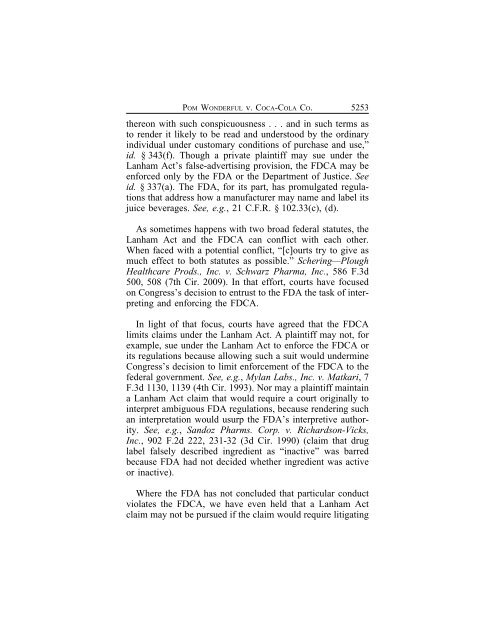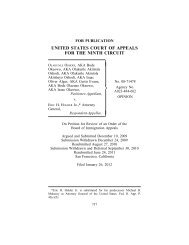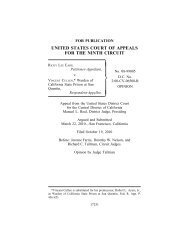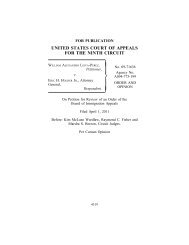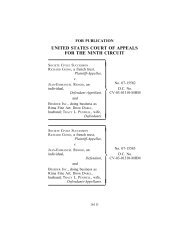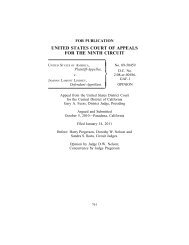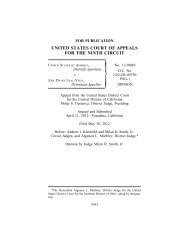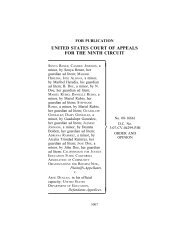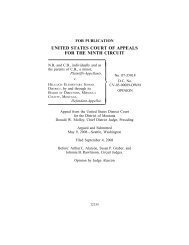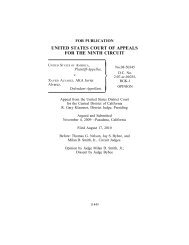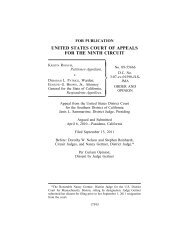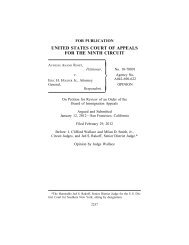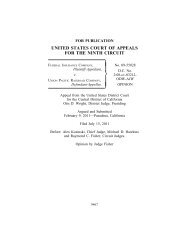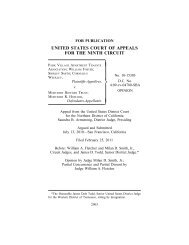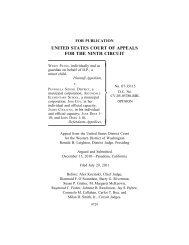Pom Wonderful v. Coca-Cola - Court of Appeals - 9th Circuit - U.S. ...
Pom Wonderful v. Coca-Cola - Court of Appeals - 9th Circuit - U.S. ...
Pom Wonderful v. Coca-Cola - Court of Appeals - 9th Circuit - U.S. ...
Create successful ePaper yourself
Turn your PDF publications into a flip-book with our unique Google optimized e-Paper software.
POM WONDERFUL v. COCA-COLA CO.<br />
5253<br />
thereon with such conspicuousness . . . and in such terms as<br />
to render it likely to be read and understood by the ordinary<br />
individual under customary conditions <strong>of</strong> purchase and use,”<br />
id. § 343(f). Though a private plaintiff may sue under the<br />
Lanham Act’s false-advertising provision, the FDCA may be<br />
enforced only by the FDA or the Department <strong>of</strong> Justice. See<br />
id. § 337(a). The FDA, for its part, has promulgated regulations<br />
that address how a manufacturer may name and label its<br />
juice beverages. See, e.g., 21 C.F.R. § 102.33(c), (d).<br />
As sometimes happens with two broad federal statutes, the<br />
Lanham Act and the FDCA can conflict with each other.<br />
When faced with a potential conflict, “[c]ourts try to give as<br />
much effect to both statutes as possible.” Schering—Plough<br />
Healthcare Prods., Inc. v. Schwarz Pharma, Inc., 586 F.3d<br />
500, 508 (7th Cir. 2009). In that effort, courts have focused<br />
on Congress’s decision to entrust to the FDA the task <strong>of</strong> interpreting<br />
and enforcing the FDCA.<br />
In light <strong>of</strong> that focus, courts have agreed that the FDCA<br />
limits claims under the Lanham Act. A plaintiff may not, for<br />
example, sue under the Lanham Act to enforce the FDCA or<br />
its regulations because allowing such a suit would undermine<br />
Congress’s decision to limit enforcement <strong>of</strong> the FDCA to the<br />
federal government. See, e.g., Mylan Labs., Inc. v. Matkari, 7<br />
F.3d 1130, 1139 (4th Cir. 1993). Nor may a plaintiff maintain<br />
a Lanham Act claim that would require a court originally to<br />
interpret ambiguous FDA regulations, because rendering such<br />
an interpretation would usurp the FDA’s interpretive authority.<br />
See, e.g., Sandoz Pharms. Corp. v. Richardson-Vicks,<br />
Inc., 902 F.2d 222, 231-32 (3d Cir. 1990) (claim that drug<br />
label falsely described ingredient as “inactive” was barred<br />
because FDA had not decided whether ingredient was active<br />
or inactive).<br />
Where the FDA has not concluded that particular conduct<br />
violates the FDCA, we have even held that a Lanham Act<br />
claim may not be pursued if the claim would require litigating


